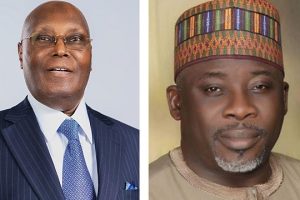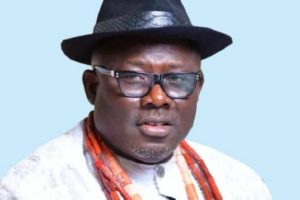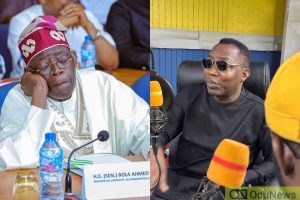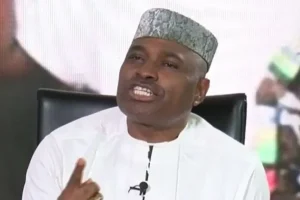
Wike’s Stance on Godfatherism Resurfaces Amid Rivers State Political Crisis
The political tensions in Rivers State have reignited discussions on godfatherism in Nigerian politics, particularly regarding former Governor Nyesom Wike’s past statements.
In a 2018 interview on The Osasu Show, Wike, who was then the Governor of Rivers State, advised former Lagos State Governor Akinwunmi Ambode to resist political godfatherism.
His remarks have resurfaced amid his ongoing power struggle with his successor, Governor Siminalayi Fubara, raising questions about whether Wike himself is now playing the role of a political godfather in Rivers State.
Wike’s Advice to Ambode on Godfather Politics
During the interview, Wike encouraged Ambode to prioritize the interests of Lagos over the influence of his political benefactor, Bola Tinubu. He strongly condemned the concept of political godfatherism, stating:
“If it is correct that the godfather is against Ambode, I will tell him to resist it. I will tell him to promote the interests of his state.”
He further criticized the practice, declaring:
“Godfatherism is not good. It negates development. No more godfather politics in Rivers State. We are not in Lagos State. Rivers State will not accept godfatherism. My concern is to do well for Rivers State.”
Despite Wike’s counsel, Ambode ultimately lost his bid for re-election in 2019 after falling out with Tinubu, the dominant political figure in Lagos.
Political Rift Between Wike and Fubara
Years later, Wike found himself entangled in a fierce power struggle with his handpicked successor, Governor Siminalayi Fubara. The conflict began in October 2023, when Fubara started asserting independence, resisting Wike’s influence over the state’s political structure.
By late October 2023, tensions escalated dramatically, culminating in an attempted impeachment of Fubara. The crisis deepened when the Rivers State House of Assembly complex was demolished, an act Wike’s allies blamed on Fubara’s administration.
Despite a peace deal brokered by President Tinubu in December 2023, both factions accused each other of violating the agreement. Wike argued that Fubara had sidelined those who supported his rise to power, while Fubara countered that Wike was interfering in governance, including chieftaincy matters.
Supreme Court Ruling Shifts Power Balance
The power struggle took a new turn on February 28, 2025, when the Supreme Court reinstated 27 pro-Wike lawmakers, shifting legislative control away from Fubara. The Rivers State House of Assembly, under Speaker Martin Amaewhule, later accused the governor of disregarding court rulings, particularly concerning the 2025 state budget. By March 17, 2025, the Assembly had issued a misconduct notice against Fubara, further escalating tensions.
As the crisis worsened, Fubara reportedly faced obstructions while trying to engage with lawmakers, with claims that he was barred from accessing the Assembly building.
State of Emergency Declared in Rivers State
On March 18, 2025, reports from Gists9ja indicated that President Tinubu declared a state of emergency in Rivers State, citing escalating unrest and threats to critical oil infrastructure.
The declaration led to the suspension of Governor Fubara, Deputy Governor Ngozi Odu, and all members of the Rivers State House of Assembly for six months. In their place, retired Vice Admiral Ibok-Ete Ibas was appointed as the state’s sole administrator.
Two days later, on March 20, 2025, the National Assembly controversially approved the emergency declaration through a voice vote, despite opposition from some lawmakers.
The unfolding events in Rivers State have sparked debates on the role of political godfatherism in Nigeria, with many drawing parallels between Wike’s past condemnation of the practice and his current political entanglements. As the crisis continues, analysts are questioning whether Wike is now facing the same power dynamics he once advised Ambode to resist.





